Tour Operators
Tour operator is an organization, firm, or company who buys individual travel components, separately from their suppliers and combines them into a package tour, which is sold with their own price tag to the public directly or through middlemen, is called a Tour Operator .
More precise tour operators are primarily responsible for delivering and performing the services specified in a given package tour. They can provide these services themselves as some have their own cars and coaches, hotels, and other travel-related services or can obtain these from the other suppliers. That is why they are called manufacturers of tourism products .
Tour operators are sometimes called wholesalers but this is partially true because a wholesaler buys goods and services in bulk at his own account to prepare a tour package and then retails it through the travel agencies or directly to clients. However, a tour operator who has his own one or more tourists products components, (SOTC, TCI, Thomas Cook, Indo Asia KUONI formulates a new tourist product for example ‘ inclusive tours .’
Tour operators generally offer a variety of package tours to cater to the needs of different kinds of travelers.

Definitions of Tour Operator
Poyther (1993) defines, “tour operator is one who has the responsibility of putting the tour ingredients together, marketing it, making reservations and handling actual operation.”
Holloway (1992) stated that tour operations undertake a distinct function in the tourism industry, they purchase separate elements of tourism products/services and combine them into a package tour which they sell directly or indirectly to the tourists.
Today, tour operators have become highly competitive. They endeavor to achieve a high volume of turnover, and maximum International and domestic market share by effectively operating. Moreover, the success of many developed and developing nations as tourists destinations depend heavily on a tour operator’s ability to attract tourists, development and promotion of tourism plant, diversification of tourism product and their social responsibilities to develop a remote and backward area.
Types of Tour Operators
Tour operators are basically categorized into four types . These are categories on the basis of their nature of the business and its operations.
Inbound Tour Operators
Outbound tour operators, domestic tour operators.
- Ground Operators
These are also known as incoming tour operators . Technically, the operators who receive guests, clients/tourists, and handle arrangements in the host country are c alled inbound tour operators . For example, a group of American Tourists is coming through TCI Ltd. to India and the company makes arrangements and handles the group in India then TCI is called an inbound tour operator.
Incidentally, the inbound traffic to the country for the last two decades has been decreasing. Essentially the tour operators need to adopt innovative marketing strategies and should introduce a special interest tour to cater the special needs of Japanese, Americans, French and British people.
Tour operator who promote tours for foreign destinations, maybe business tour or leisure tour is called outbound tour operators . For example a group of American tourists going to a trip of India and Thomas Cook handle arrangement in America like as ticket reservation, hotel booking etc. then Thomas Cook is called Outbound Tour operators in the context of America.
Domestic tour operators are those who assemble, combine tourist components into inclusive tours and sell it to the domestic travelers. In general, these tour operators provide travel services within the tourist’s native country.
The domestic tour operators operate within the boundary of the home country and offer package tour to the travelers viz. Domestic inclusive tours or independent tours.
Ground Operators/Destination Management Companies
These are commonly known as handling agencies and their main function is to organize tour arrangements for incoming tourists on the behalf of overseas operators. Let us take the case of India as a destination that – has a varied culture.
When a tour operator himself promotes beach holidays, wildlife holidays, adventure tours, heritage tours at the different places, the difficulty arises. It is the ground operator then who by handling the incoming travelers in the same season but at different places ensures that the entire operation is according to the package tours or agreements.
Sometime when a handling agency is at a prominent tourist place i.e., Delhi and it has to make arrangements to Goa, then it contracts (If it has no office of its own) with a local operator (known as excursion agent) to handle the arrangement on his behalf.
Why Ground Operators?
Obviously, the tour operation companies do not have close contact with suppliers, governments, destinations and so on. It leaves no choice with the companies but to appoint handling agencies at the destinations. The main reasons are:
- Introduction of new products or plant to promote an exotic destination.
- Lack of Government regulations.
- Lack of personal contract.
- Language problem.
- The company cannot establish its own branch.
Recognizing the very fact that the reputation, performance, and profitability of tour company in its own market largely depends on the efficiency and effectiveness of ground operators, it has because necessary for the company to consider various factors before the selection of a handling agency, they are:
- Size of business
- Professional staff
- Length of business
- Area of operation/Product line
- Market share
Functions of Ground Tour Operators
Over the years of functions and activities of the destination, companies have changed drastically to cope with the changing environment of the tourism industry. In fact, today’s destination companies have become more professional and are bound to provide personalized travel services to the tourists. The following functions are performed by ground tours operators:
- Land arrangement
- Contract and Negotiate with other vendors
- Handling of Arrival and departure procedure
- Planning and organizing local package tour
- Escorting the tourists
- Providing market information
- Costing and pricing package tour
Practically, if we see the working of the travel agencies and tour operators in the industry we find that most of the organizations are performing different types of activities like the retail travel agency , wholesale travel agency, and tour operators.
The travel agency business is no longer an amateurism. Over the last two decades, the pattern and structure of travel agencies have changed to meet tough challenges in the international market. Today, small-scale agencies are finding the travel industry increasingly complex.
Thus, the small and medium scale travel agencies are disappearing or merging or falling instead of rising. On the other hand, a new concept has also emerged i.e. tour operation business . The tour operation business is new but a maturing business at the global level.
Functions of Tour Operator
A tour operator is an organization, firm, or person who is responsible for the actual arrangement of transport and accommodation facilities on any tour or vacations. They are also responsible for operating and providing vacation through contracting, booking, and packaging together of the various components of the tour such as hotel, transportation, meals, guides, optional tours, and sometimes flights.
A tour operator is like a service provider, providing the most convenient option for tourists to stay, visit, as well as leave from the city. A tour operator owns a high volume of travel services across carriers, services, and accommodation. Some most important functions of the tour operators are following as:
Planning a Tour
The most important functions of the tour operators are planning a tour. Tour operators plan a tour and make tour itinerary which contains the identification of the origin, destination and all the stopping point in a traveler’s tours. A prospective tour operator also gives advice to intending tourists in various types of tour programmes, which they may choose for their leisure or commercial travel.
Making Tour Package
Tour operator buys individual travel components, separately from there suppliers and combines them into a package tour. Tour operators make tour package by assembling various travel components into a final product that is called tour package which is sold to tourist with own price tag. Making tour packages is also an important function of Tour Operator.
Arranging a Tour
Tour operators make tour package and also arrange a tour according to tourist demands. Tour operators arrange the tour package and various tourists activities to provide the best experience to tourists/traveler.
Travel Information
Whatever the size of tour operators, it has provided necessary travel information to the tourists. This task is utterly difficult and very complicated. A tour operator must give up-to-date, accurate and timely information regarding destinations, modes of travel, accommodation, sightseeing, immigration, health and security rules about various permits required to travel in a particular area etc.
Reservation
It is a very important function of all type tour operators and travel agencies. Tour operator makes all the reservation by making linkages with accommodation sector, transport sector and other entertainment organizations to reserve rooms, and seats in cultural programmes and transportation.
Travel Management
Tour operators manage tour from beginning to the end of the tour. A tour operator has the responsibility to look after the finer details of a vacation or tour such as hotel, accommodation, meals, conveyance etc. Tour operators provide travel guide, escorting services and arrange all travel related needs and wants.
Evaluate the Option Available
Tour operators evaluate all available options to provide a unique or unforgettable travel experience to tourists during their journey. Tour operators evaluate the various options available for a tour package and provide best of them to tourists.
Tour Operators makes tour packages and promote them into various tourists markets at domestic as well international level. Tour operators promote a travel destination to attract a large group of tourists at domestic as well as international level. In the promotion of tourist destination, tour operators play a key role. Travel agencies or tour operators are called as image builder of a country.
Sales and Marketing
Tour operators do sales and marketing of tourist products. Tour operators buy individual travel components, separately and combine them into a tour package, which is sold with their own price tag to the public directly. Tour operators do marketing of tourist destinations and tourism product to attracts the attention of the tourists/travelers.
Taking Care of Glitch
Tours operators are also called handling agencies which handles tour package and take care of all the glitches and problems arises during a tour package. Tour operators fix the glitches and provide the best available alternative to tourists during their journey.
Importance of Tour Operators
Tours operators play a key role in the tourism sector. Tour operators create tourist products, promote them a finally sold them to tourists.
Tour operators provide the best and competitive price to the tourist. Tour operators negotiate with suppliers of tourism products such as hotels, airlines and provide the best possible price to the tourist. Tour operators buy tourist products in bulk and get huge discounts from suppliers. So that they provide tourist products at a cheap price.
Tour operators organized a tour in the best way. They personalize and make sure each and every component of the tour is well-taken care. Tour operators provide the best travel experience during a tour. Tour operators save tourists time and money.
Tour operators provide immediate support systems at the host country as well as a foreign land. When tourists travel to a foreign land and things get uncertain, maybe its a health or loss of documents and need to return back or change of travel plan. A qualified tour operator takes care of all these unseen events with efficiency.
Tour operator caters to the needs of tourists on the based on their taste of travel. Tour operator provides all the best available option according to tourist needs and demands
Difference between Travel Agent and Tour Operator
There is a lot of confusion about the difference between tour operators and travel agents what exactly makes them different. The main difference between a Travel agent and Tour operator are following as:
- A travel agent is a person who has full knowledge of tourist product – destinations, modes of travel, climate, accommodation, and other areas of the service sector. He acts on the behalf of the product providers/principals and in return get a commission.
- Tour operator is an organization, firm, or company that buys individual travel components, separately from their suppliers and combines them into a package tour, which is sold with their own price tag to the public directly or through middlemen.
- Tour operators are like wholesalers and travel agents are the retailers.
- A tour operator makes the package holidays up and the travel agents sell them on.
- Tour operator taking up the bulk of the responsibilities and his fee is obviously much greater than a travel agent.
- A tour operator has the responsibility to look after the finer details of a vacation or tour such as hotel, accommodation, meals, conveyance, etc.
The wholesale travel agencies may offer or operate the package tours or may specialize in developing tours for inbound as well as outbound travelers. They are often referred to as tour operators, but there is a difference between Wholesale Travel Agencies and Tour operators .

Types of Tour Operators
Introduction.
We know that the travel market is vast, and it can be confusing trying to navigate the different types of tour operators and their offerings.
Whether you are a tour operator trying to choose which market to specialise in or a traveller looking for assistance with your next trip, we’ve got you covered!
In this blog post we will walk you through the main types of tour operators and explain how each one can help their customers to plan and book their dream trips.
What is the role of a Tour Operator?
Tour operators help travellers to design, plan, book and enjoy their trips, assisting with the entire customer journey from beginning to end.
They often combine components from several different companies such as airlines and accommodation providers as well as extras such as activities, transfers and entertainment, transforming them into tours which are sold to the public as a package .
The tour operators themselves are also responsible for the marketing of their travel packages, a topic that we covered in ‘ the tour operators’ guide to creating an exciting marketing strategy ’, and should be available for direct communication with the customer throughout the entire process.
Wondering what the differences are between each tour operator?
Well, we’re here to help.
While there are several different types of tour operator, the main ones include:
- Inbound Tour Operator
- Outbound Tour Operator
- Domestic Tour Operator
- Ground Operator
- Receptive Tour Operator
These companies can also focus on the mass market or can specialise on a niche group, such as eco-tourism, adventure sports or food tours.

Inbound Tour Operators
As we explained in ‘ Outbound vs Inbound Tour Operators ’, inbound tour operators are locally-based companies that work by bringing visitors into a specific country or destination , often partnering with other businesses such as accommodation and transport providers in order to offer customers package deals.
Inbound tour operators are also sometimes referred to as destination management companies, aiming to promote their destination as a whole to incoming travellers and assist them with all aspects of their trip. This also requires a knowledge of overseas markets and the needs and interests of different types of customers in order for them to promote their tours effectively.
Outbound Tour Operators
While inbound tour operators bring tourists into a country, outbound tour operators market to travellers in their own country and offer tours in international destinations .
When creating tour packages, outbound tour operators usually focus on specific countries, destinations or regions of the world, and also partner with businesses in the host country to provide customers with convenient and comprehensive packages.
A good example of an outbound tour operator is TUI , one of the world’s largest travel companies that works mainly by selling tours to overseas destinations and who is also one of our customers.
Domestic Tour Operators
As the name suggests, domestic tour operators put together packages for domestic travellers – those who are travelling within their native country . This type of business aims to promote travel within their own country, and offers packages in popular destinations.
Haven Holidays is a domestic tour operator that focuses on the British market by offering breaks in its self-catering holiday parks in an array of coastal destinations around the UK. These types of tour operators frequently offer family-friendly activities and diverse entertainment options for those who want to enjoy weekend breaks or summer holidays within their own country.
Ground Operators
Like domestic tour operators, ground operators also work within their own country . However, ground operators usually work on behalf of inbound or outbound tour operators and are the ones that provide the actual travel service in a destination, helping to organise and assist tourists.
This type of tour operator is especially useful for tours in far-flung destinations where it can be difficult to plan itineraries without local knowledge, expertise and contacts. Ground operators are likely to be on hand in the destination itself to organise transfers, negotiate special rates with accommodation providers or find the best local tour guides.
Receptive Tour Operators
Receptive Tour Operators provide tourism products , whether in the form of packages or single components, to other tour operators or travel agents . They do not sell directly to the public and usually follow a structure similar to a wholesaler.
RTOs are experts in their market , and help their customers to find the best accommodation providers, services and activities in their chosen destination. This type of tour operator makes money by adding a percentage rate to the final price that their customer is selling the travel product for.
For example, a receptive tour operator may work with an outbound tour operator by providing them with travel packages for a specific destination. The outbound tour operator then sells this tour package to its customers and adds an extra fee to the cost, which goes directly to the receptive tour operator.
Technology for Tour Operators
Here at Nezasa , we provide tour operators with a cutting-edge product that allows them to plan, book and customise their customers’ trips with ease. The use of a software solution like ours is an excellent way to simplify aspects of your business, allowing you to focus on the customer themselves.
Our TripBuilder software is a unique, seamless and integrated solution, designed to help you efficiently create hyper-personalised and flexible itineraries for your customers.
To find out more about our innovative products, make sure to sign up for our next webinar here .


Tour Operators: Types, Functions, Importance, Difference
- Post last modified: 19 January 2023
- Reading time: 18 mins read
- Post category: Uncategorized
What is Tour Operator?
Tour operators are sometimes called wholesalers but this is partially true because a wholesaler buys goods or services in bulk at his own account to prepare a tour package and then retails it through the travel agencies or directly to the clients.
Table of Content
- 1 What is Tour Operator?
- 2.1 Inbound Tour Operators
- 2.2 Outbound Tour Operators
- 2.3 Domestic Tour Operators
- 2.4 Destination Management Companies
- 3.1 Planning a Tour
- 3.2 Making Tour Package
- 3.3 Arranging a Tour
- 3.4 Travel Information
- 3.5 Reservation
- 3.6 Travel Management
- 3.7 Evaluate the Option Available
- 3.8 Promotion
- 3.9 Sales and Marketing
- 3.10 Taking Care of Glitch
- 4 Importance of Tour Operators
- 5.1 Tour Packages Creation
- 5.2 Make Travel Arrangements in Advance
- 5.3 Tour Operations Budgeting
- 5.4 Providing a Relaxed and Safe Tour
- 6 Difference between Travel Agent and Tour Operator
However, a tour operator who has his own one or more tourist product components formulates a new tourist product for example ‘inclusive tours’. Tour Operators generally offer a variety of package tours to cater to the needs of different kinds of travellers.
An organization, firm or company which buys individual travel components, separately from their suppliers and combines them into a package tour, which is sold with their own price tag to the public directly or through middlemen is called a tour operator.
More precisely, tour operators are mainly responsible for delivering and performing the services specified in a given package tour. They can provide these services themselves as some have their own cars and coaches, hotels and other travel-related services or can obtain these from other suppliers. That is why they are called manufacturers of tourism products.
Types of Tour Operators
Following are the types of tour operators explained briefly:
Inbound Tour Operators
Outbound tour operators, domestic tour operators, destination management companies.
These are also known as incoming tour operators. Technically, the operators who receive guests, clients/tourists, and handle arrangements in the host country are called inbound tour operators.
For example, a group of American tourists coming through TCI to India and the company makes arrangements and handles the group in India, then TCI is called an inbound tour operator. Incidentally, the inbound traffic to the country for the last two decades has been decreasing.
Essentially, tour operators need to adopt innovative marketing strategies and should introduce special interest tours to cater to the special needs of foreign tourists.
Tour operators, who promote tours to foreign destinations, maybe business tours or leisure tours are called outbound tour operators. Indian outbound tourist traffic is growing at a rate of 10 percent annually and this makes India the second-largest country in the world with regard to the travelling population.
However, India’s outbound tourism is not only holiday-oriented but it is business-oriented too. There are many travel companies that offer outbound packages such as SITA, TCI, Thomas Cook etc.
Domestic tour operators are those who assemble and combine tourist components into inclusive tours and sell them to domestic travellers. In general, these tour operators provide travel services within the boundary of the home country and offer package tours to travellers viz. domestic inclusive tours or independent tours.
These are commonly known as handling agencies and their main function is to organize tour arrangements for incoming tourists on behalf of overseas operators. When a tour operator himself promotes beach holidays, wildlife holidays, wildlife tours, heritage tours, cultural tours at different places, difficulty arises.
It is the ground operator who handles the incoming travellers in the same season but at different places and ensures that the entire operation is according to the package tours or agreements.
Sometimes when a handling agency is at a prominent tourist place, for example, Delhi and it has to make arrangements to Goa, then it contracts (if it has no office of its own) with a local operator (known as an excursion agent) to handle the arrangements on his behalf.
Functions of Tour Operator
A tour operator is like a service provider, providing the most convenient option for tourists to stay, visit, as well as leave the city. A tour operator owns a high volume of travel services across carriers, services, and accommodation. Some most important functions of the tour operators are following:
Planning a Tour
Making tour package, arranging a tour, travel information, reservation, travel management, evaluate the option available, sales and marketing, taking care of glitch.
The most important function of the tour operators is planning a tour. Tour operators plan a tour and make a tour itinerary that contains the identification of the origin, destination and all the stopping point in a traveller’s tour.
A prospective tour operator also gives advice to intending tourists in various types of tour programmes, which they may choose for their leisure or commercial travel.
Tour operator buys individual travel components, separately from their suppliers and combine them into a package tour. Tour operators make tour package by assembling various travel components into a final product that is called a tour package which is sold to tourists with their own price tag. Making tour packages is also an important function of the tour Operator.
Tour operators make tour package and also arrange a tour according to tourist demands. Tour operators arrange the tour package and various tourists activities to provide the best experience to tourists/travellers.
Whatever the size of tour operators, it has provided necessary travel information to the tourists. This task is utterly difficult and very complicated. A tour operator must give up-to-date, accurate and timely information regarding destinations, modes of travel, accommodation, sightseeing, immigration, health and security rules about various permits required to travel in a particular area etc.
It is a very important function of all types of tour operators and travel agencies. Tour operators make all the reservations by making linkages with the accommodation sector, transport sector and other entertainment organizations to reserve rooms, and seats in cultural programmes and transportation.
Tour operators manage tours from the beginning to the end of the tour. A tour operator has the responsibility to look after the finer details of a vacation or tour such as hotel, accommodation, meals, conveyance etc. Tour operators provide travel guides, and escorting services and arrange all travel-related needs and wants.
Tour operators evaluate all available options to provide a unique or unforgettable travel experience to tourists during their journey. Tour operators evaluate the various options available for a tour package and provide the best of them to tourists.
Tour Operators makes tour packages and promote them into various tourists markets at domestic as well international level. Tour operators promote a travel destination to attract a large group of tourists at the domestic as well as international level.
In the promotion of tourist destinations, tour operators play a key role. Travel agencies or tour operators are called image builders of a country.
Tour operators do sales and marketing of tourist products. Tour operators buy individual travel components, separately and combine them into a tour package, which is sold with their own price tag to the public directly. Tour operators do the marketing of tourist destinations and tourism products to attract the attention of tourists/travellers.
Tours operators are also called handling agencies that handle tour package and take care of all the glitches and problems that arise during a tour package. Tour operators fix the glitches and provide the best available alternative to tourists during their journey.
Importance of Tour Operators
- Tours operators play a key role in the tourism sector. Tour operators create tourist product, promote them and finally sold them to tourist.
- Tour operators provide the best and competitive price to the tourist. Tour operators negotiate with suppliers of tourism product such as hotels, airlines and provide the best possible price to the tourist.
- Tour operators buy tourist product in bulk and get huge discounts from suppliers. So that they can provide tourist’s products at cheap price.
- Tour operators organized a tour in the best way. They personalize and make sure each and every component of the tour is well-taken care. Tour operators provide best travel experience during a tour. Tour operators save tourist’s times and money.
- Tour operators provide immediate support system at host country as well as foreign land. When tourists travel to a foreign land and things get uncertain, maybe it’s a health or loss of documents and need to return back or change of travel plan. A qualified tour operator takes care of all these unseen events with efficiency.
- Tour operator caters to the needs of tourists on the based on their taste of travel. Tour operator provides all the best available option according to tourist needs and demands.
Role of Tour Operators in Tourism Business
Tour packages creation.
The tour operator is in charge of developing and maintaining guests’ tour packages. The preparation of activities that appeal to the specific visitors embarking on the trip is part of tour package management. When and how to adjust a tour package to best adhere to the group or individual’s goals should be covered by the tour operator.
Make Travel Arrangements in Advance
In most circumstances, tour operators are responsible for making travel arrangements for the touring group. This covers transportation from one location to another, as well as ensuring that all members of the group arrive at their next destination. Tour operators frequently assist with flight tickets and collaborate closely with hotels to recommend lodging reservations, sightseeing alternatives, and other activities to group members.
Tour Operations Budgeting
Tour operators work hard to build tour packages that provide users with great service at a lower cost than if they booked each commodity separately, while still running a profitable business. Tourists purposefully seek out the assistance of a travel agent or tour operator in order to get more value for their money. Before finalising a tour package, tour operators should take the time to evaluate pricing.
Providing a Relaxed and Safe Tour
A tour should fulfil all of a traveller’s expectations and beyond. A tour operator should be skilled at putting together an experience that will leave guests with lifelong memories.
It’s just as crucial to providing a meaningful, good experience as it is to keep your passengers safe throughout the journey. Some tour activities may represent a possible risk to travellers, putting the tour organisation at risk. As a tour operator, you should encourage your visitors to purchase travel insurance. Insurance will give you and the tourists peace of mind as they go on once–in–a–lifetime experiences. Travel Agency & Tour Operators Roles & Responsibilities
Difference between Travel Agent and Tour Operator
There is a lot of confusion about the difference between tour operators and travel agents what exactly makes them different. The main difference between a Travel agent and a Tour operator are following as:
- A travel agent is a person who has a full knowledge of tourist product – destinations, modes oftravel, climate, accommodation and other areas of the service sector. He acts on the behalf ofthe product providers/principals and in return get a commission.
- Tour operator is an organization, firm or company who buys individual travel components,separately from their suppliers and combines them into a package tour, which is sold withtheir own price tag to the public directly or through middlemen.
- Tour operators are like wholesalers and travel agents are the retailers.
- A tour operator makes the package holidays up and the travel agents sell them on.
- Tour operator taking up the bulk of the responsibilities and his fee is obviously much greaterthan a travel agent.
- A tour operator has the responsibilities to look after the finer details of a vacation or tour suchas hotel, accommodation, meals, conveyance etc.
Please Share This Share this content
- Opens in a new window X
- Opens in a new window Facebook
- Opens in a new window Pinterest
- Opens in a new window LinkedIn
- Opens in a new window Reddit
- Opens in a new window WhatsApp
You Might Also Like
Architectural landmarks of west bengal, styles of service in restaurant | techniques, order to serving meals, handling service dishes and utensils, types of resorts, what is catering industry, segments, types, cereals and pulses, leave a reply cancel reply.
Save my name, email, and website in this browser for the next time I comment.

The 3 types of travel and tourism organisations
Disclaimer: Some posts on Tourism Teacher may contain affiliate links. If you appreciate this content, you can show your support by making a purchase through these links or by buying me a coffee . Thank you for your support!
There are many different types of travel and tourism organisations. From tour operators to airlines, to tourist boards and conservation activists, each organisation is different. However, most travel and tourism organisations can be grouped into one of three categories: private, public or voluntary. In this article I will explain what’s meant by each type of thew types of travel and tourism organisations.
Types of travel and tourism organisations
What is a private travel and tourism organisation, aims of private travel and tourism organisations, tour operators, travel agents, transport organisations and hubs, visitor attractions, accommodation providers, what is a public travel and tourism organisation, aims of public travel and tourism organisations, tourist information centres, tourist boards, local transport organisations, regulatory bodies, government bodies, what is a voluntary travel and tourism organisation, aims of voluntary travelled tourism organisations, pressure groups, types of travel and tourism organisations: to conclude, further reading.
Travel and tourism is big business and there are many different types of travel and tourism organisations. Many argue that the tourism industry is the biggest industry in the world, employing more people than any other industry! There are many different components of tourism , meaning that there are a wide range of organisations that are involved in the operational logistics of tourism management.
The types of travel and tourism organisations can be broadly separated into one of three categories: private, public and voluntary. Below, I will explain what is meant by each type of organisation.

Private travel and tourism organisations
The first, and most common, types of travel and tourism organisations are privately owned. The majority of the travel and tourism industry is made up of private travel and tourism organisations. This includes many of the well-known companies that most of us are familiar with.
A private organisation is one that is owned by an individual person, a group of people or company.
Sometimes private organisations are public limited companies (PLCs). This means that the company is owned by many people who buy shares in the organisation. These shares are sold on the stock market. The price of shares goes up and down depending on the market value of the company.
Private travel and tourism organisations come in all shapes and sizes. Some are small companies, often known as small to medium-sized enterprises (SMEs). Others are large companies, multinational companies and conglomerates.
Staff who work for a private travel and tourism organisation are generally paid a salary. Although travel and tourism salaries are often quite low, especially in developing countries!
These types of travel and tourism organisations have several aims. First and foremost, most private organisations aim to make a profit. Their most dominant motive is making money.
Many private travel and tourism organisations will also aim to increase their market share. This means that the company wants more customers than its competitors.
Private companies will often aim to grow their business and increase their turnover each year. In other words, they want to make more and more money every year.
Increasing revenue can be difficult and complicated. The infographic below gives you some idea of the aspects that need to be considered by a travel and tourism organisation when planning for growth and development.
Image is an important part of being a successful travel and tourism business. Private organisations will often try to portray a good image and/or improve their image. They can do this through taking on social projects , demonstrating a commitment to environmental conservation or through charitable acts.
This is often referred to as corporate social responsibility.

Another way that private travel and tourism organisations can make more money and increase their profit is to diversify the range of products and services that they offer. In other words, the more different products/services that they sell, the more customers that they can potentially attract.
Examples of private travel and tourism organisations
There are many different private types of travel and tourism organisations. In fact, most organisations in the travel and tourism industry are privately owned! Below are some examples:
A tour operator is an organisations who puts together, or builds, a holiday.
There are many tour operators all over the world in all shapes and sizes. You may be familiar with some of the larger brands, such as TUI and Hays Travel.
A travel agent is the person who sells you a holiday. They can also sell individual travel products, such as flights or ancillaries (e.g. insurance, car hire, attraction tickets). There are several different types of travel agents .
Examples of travel agents that you may be familiar with include Cooperative Travel, Crystal Corporate and Virgin Holidays.
Transport is a key component of tourism and there are different methods of transport depending on the holiday.
A hub is a connecting point, where passengers may change transport options. For examples major airports bus station or a railway station.
Examples of major transport operators that you may be familiar with includes British Airways, Virgin Trains and Mega Bus.
Examples of major hubs include London Heathrow Airport, London Waterloo train station and London Victoria bus station.
Do you enjoy learning about travel and tourism? Follow my stories on Instagram for more on tourism theory and everyday travelling fun!
Many, but not all, visitor attractions are private travel and tourism organisations.
The types of visitor attractions vary widely, from theme parks to botanic gardens to historical buildings.
Examples of private visitor attractions that you may have heard of includes Disney Land, Paris, the Pyramids of Giza in Egypt and the Brighton Sea Life Centre.
Most accommodatio providers are privately owned.
There are many different types of accommodations ranging from bed and breakfast to caravans to hotels.
Accommodation providers that you may be familiar with include Hilton Hotel, Travel Lodge and Airbnb. Airbnb is a major player in the tourism industry in recent years- you can learn all about this business (and get a discount off of your first booking!) in this article- what is Airbnb?
Public travel and tourism organisations
Public travel and tourism organisations make up an important part of the travel and tourism industry . Public organisations provide many of the essentials fundamentals that enable the tourism industry to function. These types of travel and tourism organisations are less common than private organisations, but are an important part of the travel and tourism industry.
These types of travel and tourism organisations is an organisation that is owned or funded by the government.
Public organisations can be local organisations, i.e. smaller companies theatre based in specific local areas. Public organisations can also be national organisations, i.e. they operate on a country-wide level.
Public travel and tourism organisations will likely have paid staff as well as volunteers, who are unpaid.
The main aim of these types of travel and tourism organisations is to provide services to the public.
Public organisations are allocated funding by the government. The amount of funding that is allocated to a particular area depends on a number of factors, including a needs assessment and the government budget.
Each year the government will decide where and how to allocate money that is raised largely through taxes. You can learn more about how this is done in the short video clip below.
Public organisations should ensure that the best level of service is maintained. However, public organisations often have limited funds compared to private organisations. Therefore service levels are often lower in public organisations theatre directly comparable with private organisations (i.e. they are the same type of business operating in a similar way).
Unlike private organisations, public travel and tourism organisations are not profit-driven. Whilst many organisations do need to make money to survive, their main focus is not profit, but instead is the level of service. This means that prices can be kept lower for consumers.
Privatisation in travel and tourism Privatisation is a controversial topic within the tourism industry and beyond. Privatisation is the process of selling public organisations to private companies. By selling public organisations, the government can raise money and focus their efforts in alternate areas. However, this means that the government no longer have control over aspects such as pricing and service quality. There are many examples of privatisation in the travel and tourism industry. In the UK, British Airways was improved considerably when privatised- under government control the airline was about to fold. On the other hand, since much of British Rail has been sold to private companies prices have risen significantly and there is a lot of dissatisfaction amongst consumers with regards to service levels.

When public organisations make profit, the intention is that this money is reinvested. The money may be reinvested directly into the same business. Alternatively, the money may be allocated elsewhere within the annual government budget.
Examples of public travel and tourism organisations
Public organisations are some of the most important types of travel and tourism organisations. They are often the backbone of the rest of the industry, without which it could not operate. Below are some examples of public travel and tourism organisations.
A tourist information centre (TCI) is an organisation that provides information to tourists.
Tourist information centres will often be located in tourist areas such as towns and cities and coastal destinations. They are also typically found at airports or major transport hubs.
Tourist information centres often provide free information such as maps, apps, brochures and leaflets about tourism in the area.
A tourist board is an organisation whose responsibility is to provide information about and promote a particular tourist area.
Tourist boards can be regional or national. Their job is to encourage tourism in the are within which they are based.
Tourist boards that you may have heard of in the UK include Visit Britain (the national tourist board), Visit Cornwall and Visit Oxford (regional tourist boards).
There are some visitor attractions theatre publicly owned.
In the UK, we have many museums and exhibitions theatre public organisations. The government subsidises entrance costs at some of the public tourist attractions.
By keeping a tourist attractions as a public organisation it enables protection and preservation of the area and of the attraction itself.It also enables sustainable tourism management by assessing capacity levels and visitor numbers.
Public tourist attractions that you may have heard of include the Natural History Museum in London, the Eiffel Tower in Paris and the Great Wall of China .
Many transport providers are publicly owned.
Buses, trains and airports are often public organisations. Although, as I previously stated, sometimes these are privatised.
By keeping public transport publicly owned it generally enables prices to stay lower, although the service may be inferior to private transport companies, who may choose to investor money into their products and services in anticipation of greater financial outcomes.
A regulatory body is an organisation with the purpose of regulating. These organisations will monitor and assess, imposing requirements and rules as needed. Regulatory bodies set standards and enforce compliance.
Regulatory bodies in the UK include the Bank of England and the Financial Policy Committee.
A government body is a group of people who are given the responsibility of exercising governance. These people are responsible for making decisions and agreeing law.
Government bodies are typically separated into sectors of the economy. Examples include the Department of Agriculture and the Department for Education.
Voluntary travel and tourism organisations
The voluntary sector plays an important role in our society. There are many different types of voluntary organisations, some of which can be defined as tourism-based organisations . Lets learn a little bit more about these types of travel and tourism organisations.
A voluntary travel and tourism organisation is a company that is not profit making. For these types of travel and tourism organisations, any profit that is received is directed back into the business, not into the hands of CEOs or shareholders, as would be the case with a private travel and tourism organisation.
Voluntary travel and tourism organisations are often funded through charitable donations or government grants. Sometimes they operate aspart of a legacy.

Some voluntary organisations charge entrance fees to help with maintenance and running costs of the business.
Voluntary travel and tourism organisations will often rely on unpaid volunteers to operate. There will also usually be some paid staff, although salaries in the charitable sector are typically quite low.
For these types of travel and tourism organisations, the aim of a voluntary travel and tourism organisation is to preserve or protect particular areas of society or natural environments.
This can include environmental protection and conservation, such as a turtle breeding programme in Costa Rica or a volunteer tourism project operating in the Amazon rainforest.
Voluntary travel and tourism organisations may focus on the conservation of buildings, particularly if they are of historical or cultural value . They may also work with tourism stakeholders on landscape designs and features, often to ensure that any new development is in keeping with or does not negatively inflict on the current landscape.
Many voluntary travel and tourism organisations will work to lobby or campaign on particular issues. This will likely include cultural preservation, environmental protection and economic distribution. If there is a proposed development thatchy do not approve of, the voluntary organisation will often campaign against it.
Many voluntary travel and tourism organisations will centre around the concepts of conservation and sustainability.
Examples of voluntary travel and tourism organisations
There are many voluntary travel and tourism organisations around the world. Some examples of these types of travel and tourism organisations include:
Some visitor attractions are non-profit, voluntary travel and tourism organisations. Sometimes these are natural attractions and sometimes these are man-made attractions.
Examples include many National Trust organisations and conservation-based projects, such as elephant rescue programmes in Thailand or maorinebiology research programmes in the Great Barrier Reef, Australia .
Some transport is operated on a voluntary basis. This will often be associated with other charitable projects or as an incentive to encourage visitors to visit particular area.
There are a number of charities that are associated with the travel and tourism industry.
Organisations such as World Wildlife Fund and the International Animal Welfare Charity are directly linked with a number of tourism-based projects and initiatives.
A pressure group is an organisation which campaigns for change.
There are a number of pressure groups that are not tourism-based, but that are related to tourism management, such as Animal Aid and Friends of the Earth.
There are also pressure groups that are solely tourism focussed, such as the Aviation Environment Federation or Tourism Concern (note- Tourism Concern has recently ceased operations).
As you can see, there are many different types of travel and tourism organisations. These range from large to small and from profit-making to non-for-profit. There are three main types of travelled tourism organisations, which are private, public and voluntary.
If you enjoyed this article on the types of travel and tourism organisations, I am sure that you will love these too-
- The 10 Major Types of Events
- The 8 Major Types of Cruise
- 150 types of tourism! The ultimate tourism glossary
- 20 Popular Types of Hotels Around The World
- 21 Types of Tourists Around The World
Liked this article? Click to share!
What is a Tour Operator?
Embarking on a journey to a new destination is an exciting adventure that brings with it the promise of discovery, cultural immersion, and unforgettable experiences. While the allure of wanderlust beckons, the complexities of planning a seamless trip can sometimes be daunting. This is where tour operators step in to create a bridge between your travel dreams and reality. In this blog, we’ll delve into the world of tour operators, highlighting their benefits and comparing them to traditional travel agencies.
A tour operator is a travel professional or company that designs, organizes, and sells comprehensive travel packages that include various elements such as transportation, accommodation, activities, meals, and more. These packages are carefully curated to offer travelers a hassle-free and well-structured experience. Tour operators work closely with local suppliers, hotels, transportation providers, and guides to ensure that every aspect of your journey is thoughtfully planned and executed.
The Benefits of Choosing a Tour Operator
Expertise and Local Insight: Tour operators possess in-depth knowledge of the destinations they offer. They have the ability to craft itineraries that showcase the must-see attractions as well as hidden gems that might go unnoticed by the average traveler.
Saves Time and Effort: Planning a trip can be time-consuming and overwhelming. Tour operators take the burden off your shoulders by handling all the logistics, from booking accommodations and arranging transportation to organizing activities.
Tailored Experiences: While group tours are popular, tour operators also offer customized itineraries for travelers who prefer a more personal touch. They consider your preferences, interests, and travel style to create a journey that suits you perfectly.
Seamless Transitions: Moving from one location to another can sometimes be tricky, especially in unfamiliar places. Tour operators ensure smooth transitions between destinations, taking care of transportation and minimizing any potential stress.
Access to Exclusive Experiences: Tour operators often have established relationships with local guides and suppliers, granting you access to unique experiences that might not be available to independent travelers.
Safety and Support: Traveling to a foreign country can present unexpected challenges. Tour operators provide a safety net, offering assistance and support in case of emergencies or unforeseen circumstances.
Tour Operators vs. Travel Agencies
While both tour operators and travel agencies play pivotal roles in the travel industry, they differ in their approach and scope:
Tour Operators: As discussed, tour operators focus on crafting comprehensive travel packages that encompass various aspects of a journey. They specialize in creating cohesive experiences, handling everything from accommodations to activities.
Travel Agencies: Travel agencies primarily assist with booking individual components of a trip, such as flights, accommodations, and car rentals. They offer flexibility but often require travelers to assemble these components into a coherent itinerary themselves.
Why Choose a Tour Operator?
Holistic Experience: Tour operators offer a complete, well-rounded experience that takes the stress out of planning.
Local Insights: Their expertise ensures that you gain insights into the culture, history, and lifestyle of your destination.
Time and Effort Savings: With all the logistics managed for you, you can fully immerse yourself in the journey without worrying about details.
Peace of Mind: The support and assistance of a tour operator provide a safety net, enhancing your sense of security while traveling.
Exclusive Access: Tour operators often provide access to unique experiences that are carefully curated to enhance your journey.

In the realm of travel, tour operators emerge as true architects of unforgettable experiences. With their dedication to crafting seamless journeys, local insights, and personalized touch, they stand out as ideal partners for turning your travel dreams into reality. When considering your next adventure, think beyond the conventional travel agency and embrace the benefits of choosing a tour operator. Your voyage awaits – let Juniper guide you on a path to remarkable discoveries.
Thanks for checking out Juniper Tours’ Travel blog! We hope you enjoyed your read and if you’re looking for more content please check out our other blog posts ! If you’re looking for help planning your next travel adventure then book a FREE travel consultation with one of our Travel Specialists today!
Schedule a Free Travel consultation today!
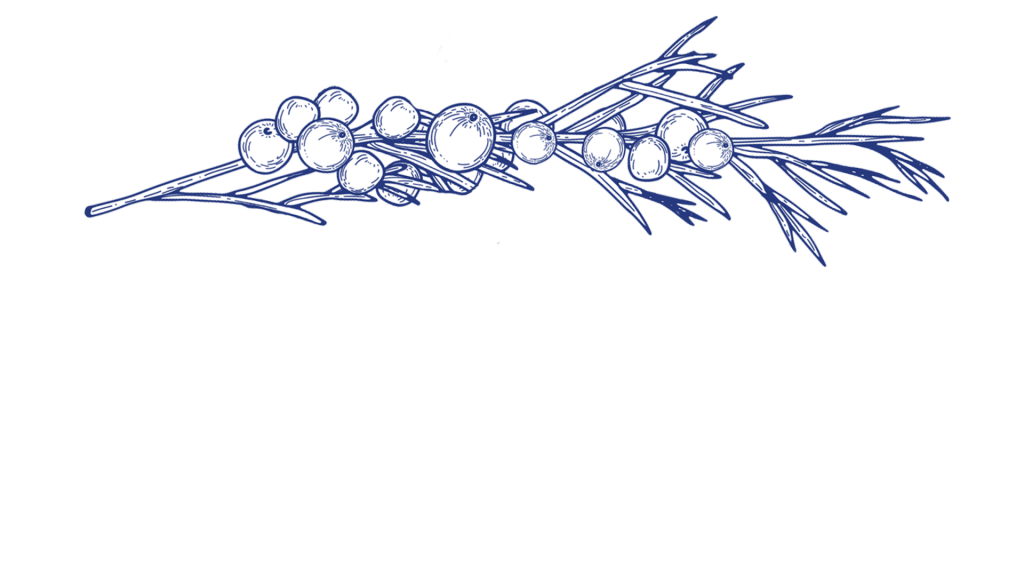
© Copyright 2024 Juniper Tours.
Privacy Policy
Subscribe to our newsletter for exclusive offers and updates.
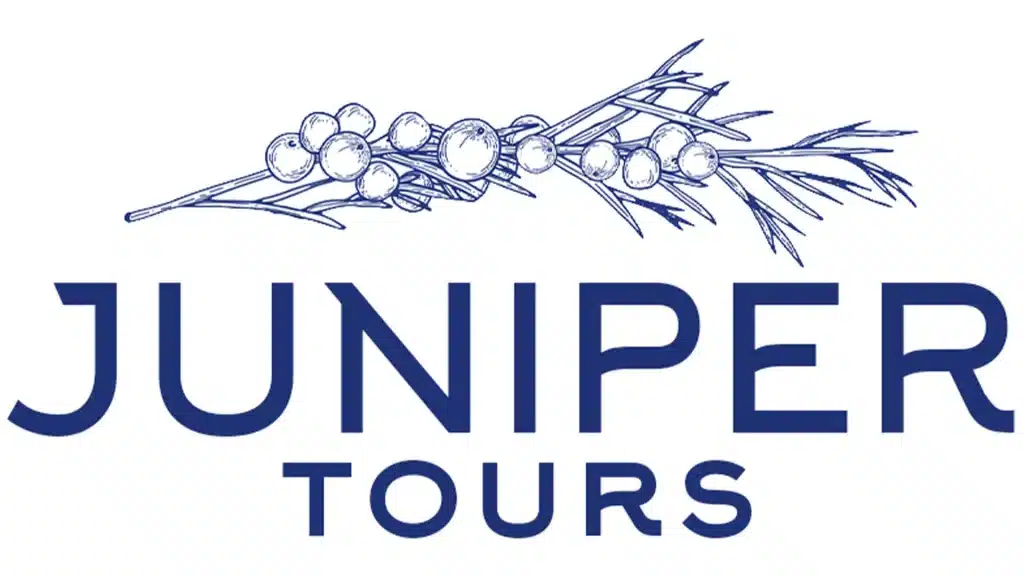
© Copyright 2023 Juniper Tours.

Feel free to contact us anytime!
- 877-774-3256
- Email us Here
- 1 Central St, Suite 205 Middleton, MA 01949
Speak with our Travel Specialists
Ready to Schedule a FREE Travel Consultation?

We’ll send you our free full color travel guide. Just fill in the form below
TripMatrix Product Features
Manage the entire travel agency back office from start to finish. TripMatrix allows you to add your products and services, build trips, create and promote offers, payment processing, and much more.
Product Features
Contacts and Accounts
A simple way to add and manage contacts and accounts
Offers and Bookings
Create, send, receive, track predefined and tailor-made offers
Build dynamic itineraries by utilizing advanced route planner
Products and Services
Add and manage all your products and services
Web Booking Engine
Use WBE to promote your offerings worldwide
Travel Tech Insights, Events & Trends
Discover the latest trends and events in the travel tech industry.
TripMatrix Blog
TripMatrix Events
Video Tutorials

Streamline Your Travel Agency Operations with TripMatrix

Elevating Your Travel Agency with Smart Marketing and SaaS Solutions in 2024
All about TripMatrix
Learn more about Tripmatrix and find open positions, company culture, current team, etc.
Discover 5 Types of Tour Operators
Mar 15, 2023
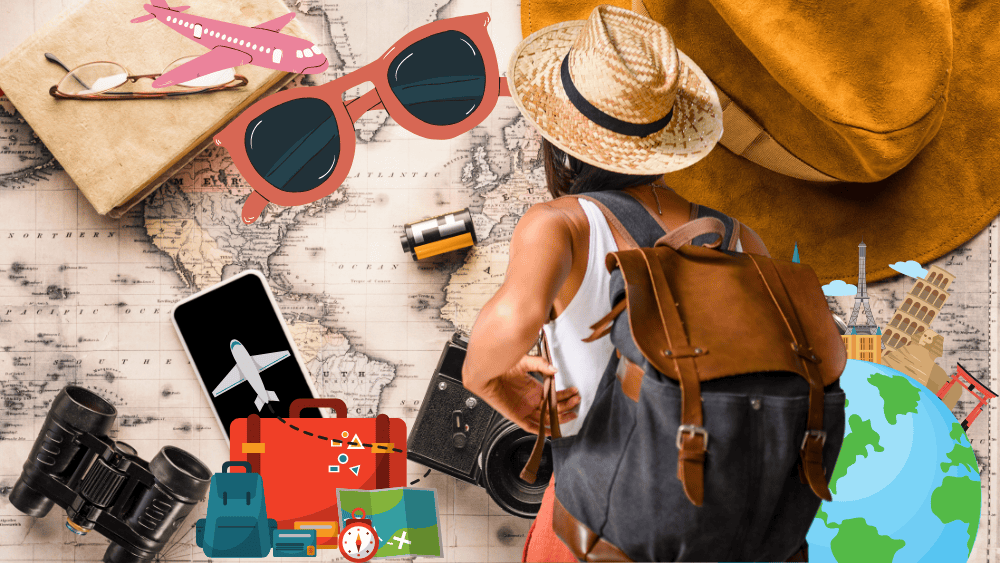
Starting a tour operating business can be an exciting and rewarding experience. However, with so many different types of tour operators out there, it can be challenging to decide which market to pursue. In this blog, we will provide guidance on the different types of tour operators available and help you choose the right market for your tour operating business.
Inbound Tour Operators
Definition of Inbound Tour Operators; An inbound tour operator is a company that specializes in organizing tours and activities within their country, working with travel agents to create packages for international visitors. They are responsible for organizing itineraries, accommodations, transportation, and activities for incoming tourists.
Their role in managing domestic tours and activities; they welcome international travelers and assist them with planning their travel to suit their needs using their country-specific knowledge.
Advantages of working with an inbound tour operator; They use their local knowledge to create a seamless, stress-free travel itinerary for their customers.
Outbound Tour Operators
Definition of Outbound Tour Operators; An outbound tour operator is a company that works with clients who are traveling outside of their home country. They offer packages that include flights, accommodations, and activities. For example, if a US resident is planning a trip to Asia, an outbound US tour operator will take care of all the details.
Their role in managing international tours and activities; They work with local travel partners in different countries to provide travelers with a complete travel experience.
Advantages of working with an outbound tour operator; They allow customers to work with someone from their home country to plan and book international travel itineraries.
Domestic Tour Operators
Definition of Domestic Tour Operators; A domestic tour operator specializes in organizing tours and activities within a specific country. They cater to locals who want to explore their own country.
Their role in managing tours and activities within a particular country; They cater to locals who want to explore their own country and have specialized knowledge on trips and activities that locals don’t often experience.
Advantages of working with a domestic tour operator; Domestic tour operators often cater to native travelers who want to experience new areas within their home country. They typically have a collection of specific holiday and weekend trips that are ideal for travelers looking to book around their work and family schedules.
Specialist Tour Operators
Definition of Specialist Tour Operators; A specialist tour operator is a company that focuses on a specific niche or interest. They create packages that cater to travelers with specific interests or needs. Some examples include adventure, luxury, cultural, or wildlife travel.
Their role in managing niche travel experiences; They specialize in creating tour packages that match travelers with experiences that they are particularly interested in or wanting to learn more about. They work with local partners to create these unique offerings.
Advantages of working with a specialist tour operator; They offer tour packages specifically crafted for different interests and often allow the traveler to learn more about their destination than other options.
Ground Operators
Definition of Ground Operator; Similar to domestic operators, ground operators work on travel itineraries within their home country. The difference is that they specialize in providing local services on behalf of other travel agencies and operators to the clients throughout their trip.
Their role in managing tours and activities; They work with travel agents to create customized travel itineraries for groups and individual travelers. Their services may include directly taking care of a client’s transportation, accommodations, meals, and activities during their trip.
Advantages of working with a ground operator; They provide a high level of support and assistance throughout the trip, ensuring that everything runs smoothly and according to plan.
Conclusion:
In conclusion, choosing the right market for your tour operating business depends on your interests, expertise, and resources. Whether you choose to specialize in inbound or outbound tours, domestic or international travel, or a particular niche, there are endless opportunities to create unique and memorable travel experiences for your customers. With the guidance and support of TripMatrix, you can start your tour operating business and pursue the market that best suits your vision and goals as well as connect with other operators. Discover how TripMatrix tour operator software is helping true operators aound the world to manage their travel business more efficient.
Recent Posts


Who is a Tour Operator? Know Roles and Responsibilities
If travel destinations and tourist places are something that interest you or fill you with enthusiasm, probably then, you must know about a tour operator. Tour operators advise customers about different travel options. They organize tours for individuals or different groups of travelers. As professionals, they prepare tour itineraries, and tour packages and coordinate with vendors for your holidays.
In this write-up, we delve into a tour operator’s roles and discuss the necessary skills, roles, and education qualifications for the job.
Who is a Tour Operator?
A tour operator is someone who belongs to the hospitality industry. He organizes tours and helps customers during trips so that they have positive reviews. Advising customers on different tour packages based on their budget and interests, and handling all logistics of a tour, such as booking tickets and accommodations, are some basic roles assigned to them.
Tour operators generally work for travel agencies or tour companies A tour guide will accompany tourists on their trips, but tour operators are solely available to answer their questions. They provide detailed information about tourists’ itineraries.
Types of Tour Operators
Here are some types of tour operators who can help you plan your holidays better and make them memorable!
1. Domestic Tour Operators
Domestic tour operators provide tours and travel services within their own country. They serve tourists who desire to explore different regions or attractions within their country.
2. Inbound Tour Operators
These operators serve foreign tourists visiting their country. They plan and organize tours within their own country, and provide services such as transport, accommodation, guided tours, and activities.
3. Outbound Tour Operators
Outbound tour operators organize tours for residents of one country traveling to another country or countries. They arrange the trip, including flights, accommodations, transportation, and activities at the travel destination.
4. Special Interest Tour Operators
These operators specialize in planning tours catering to specific interests or hobbies, such as wildlife safaris, culinary tours, photography tours, adventure travel, or cultural immersion experiences.
5. Wholesale Tour Operators
Wholesale tour operators sell pre-packaged tour products in bulk to travel agencies or retail outlets. They often provide discounted rates to travel agents. Travel agents usually earn a profit by reselling the tours to clients.
6. Incentive Travel Companies
These companies organize travel experiences for corporate groups or organizations as rewards or incentives for employees or clients. They often tailor trips to meet the guided objectives and preferences of the organization.
Tour operators design and organize pre-packaged tours or holiday packages while the Travel agents help clients in booking individual travel components.
What is the Role of a Tour Operator?
Tour operators play a wide array of roles when it comes to planning holiday packages and dealing with tourists.
1. Planning Tour Packages
These professionals design and schedule travel packages for individual travelers or groups of tourists. They coordinate with their clients to discuss their likes and dislikes and then suggest a range of attractions, accommodations, and transportation options to enable the clients to select the tour packages that meet their preferences.
2. Negotiating Rates
Often the tour operators can try to book a group of room /blocks in a hotel for their bigger group. This leads to lower rates for the tourists.
3. Arranging Travel
Tour operators ensure that passengers have their train tickets to travel between the cities or even book a car rental to help customers visit the attractions according to their schedule.
4. Providing Customer Support
A tour operator offers travelers with the technical assistance that they may need before a trip. For example, they may reply to customer questions about a trip they are planning, tell them about currency exchange rates, or notify them if there are any changes in their itinerary.
5. Preparing Tour Budgets
A tour operator comes up with different price options with sample itineraries and counsels customers on the kind of lodging and attractions that are within their budget.
6. Researching Travel Options
Tour operators are specialists who gather and study data on traveling patterns to suggest itineraries to tourists about where they should go, where they will stay, and where they can eat on their trips.
They read articles and browse online for details about travel trends and popular tourist spots that they can use to stay updated with what is trending currently.
Educational Requirements for a Tour Operator
To become a tour operator you need a high school diploma or equivalent. Some employers, particularly tour companies or travel organizations, may prefer to hire candidates with a bachelor’s degree.
Tour operators need a degree in tourism and travel services management or hospitality management. Many colleges and universities offer these undergraduate programs, and it typically takes four years for students to complete their degree. You can also consider doing short-term courses in the following streams.
- Hospitality finance
- Foundations of tourism
- International hotel management
- Tourism information technology
- Hospitality management strategies
- Sustainable tourism planning
- Revenue management
- Service technology
- Event planning
- Human resources management
- Hospitality sales and marketing

Difference between Travel Agent and Tour Operator
Tour operators and travel agents both play important roles in the tourism industry, but they have distinct functions and responsibilities. Let’s differentiate between the two.
Travel Agent :
A travel agent is an individual or a company that acts as an intermediary between travelers and travel service providers. They may specialize in certain types of travel, destinations, or services.
Travel agents typically earn commissions from the travel suppliers they book with, rather than charging clients directly for their services.
They assist clients in planning and booking the trip, including flights, accommodations, transportation, and activities.
Tour Operator :
A tour operator is a company that designs, organizes, and sells pre-packaged tours or holiday packages to travelers. Tour operators handle all aspects of the tour, including accommodations, transportation, meals, guided tours, and activities. They often work with travel agents to sell their tour packages to clients.
They may specialize in specific types of tours, such as adventure tours, cultural tours, luxury tours, or eco-tours. Tour operators also offer customized tour packages tailored to the preferences and needs of individual clients or groups.
Wrapping Up
The profile of a tour operator is special as it blends creativity, expertise, and impact. Tour operators have the privilege of turning travelers’ dreams into reality by crafting unique and immersive travel experiences tailored to specific interests and preferences.
They have an extensive knowledge of travel destinations, coupled with strong connections with local suppliers. This enables them to offer better service and access to exclusive travel opportunities.
Check also: Best Places to Visit in Kashmir
Moreover, tour operators play a crucial role in promoting sustainable tourism practices as they support local communities, and preserve cultural and natural heritage. Although they may face challenges such as changing rules and unforeseen circumstances, tour operators show professionalism in ensuring the safety and satisfaction of their clients.
A tour operator designs organizes, and sells pre-packaged tours or holiday packages to travelers. They plan and coordinate all aspects of the tour, including accommodations, transportation, meals, guided tours, and activities.
They also negotiate contracts with travel suppliers such as hotels, airlines, transportation companies, and tour guides. A tour operator promotes tour packages to attract clients.
Moreover, they assist and support to travelers before, during, and after the tour. They also ensure compliance with safety regulations and provide a high-quality travel experience.
While both tour operators and travel agents are involved in the travel industry, they have separate roles and functions.
A tour operator specializes in designing and organizing pre-packaged tours or holiday packages for travelers. They handle all aspects of the tour, from transportation and accommodations to planning activities and excursions.
On the other hand, a travel agent acts as an intermediary between travelers and travel service providers. They assist clients in planning and booking various aspects of a trip, such as flights, accommodations, transportation, and activities.
Travel agents may work with tour operators to sell their tour packages to clients, among other services.
A tour operator designs and creates pre-packaged tour itineraries tailored to specific destinations or themes. They negotiate contracts with hotels, airlines, transportation companies, and other travel suppliers to secure competitive rates and check availability.
They handle all logistics related to the tour, including booking accommodations, arranging transportation, and organizing guided tours and activities.
They market and promote tour packages to target audiences through online platforms, travel agencies, and promotional events.
A tour operator provides assistance and support to travelers throughout the tour, including addressing any issues or concerns that may arise.
Finally, they ensure compliance with safety regulations and industry standards to ensure the well-being and safety of travelers.
Last but not least, a tour operator continuously evaluates and improves tour offerings based on customer feedback and market trends to improve the overall travel experience.
You Might Also Like
Mesmerising moments: reviewing thrillophilia’s dubai tour, sign up for daily newsletter, be keep up get the latest breaking news delivered straight to your inbox..

Leave a Reply Cancel reply
Your email address will not be published. Required fields are marked *
Save my name, email, and website in this browser for the next time I comment.
Stay Connected
Latest posts.
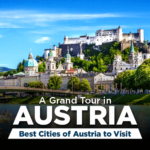
A Grand Tour in Austria: Top Places to Visit in Austria

Navigating Mumbai, The Pros And Cons Of Vehicle Ownership Essay

Anandi Water Park, Lucknow: Ticket Price, Location & Timings

Cultural Immersion: Experiencing Local Life in Japan’s Premier Ski Villages

Sign in to your account
Username or Email Address
Remember Me

- Business Guide
- Destination Guide
- Hotel Guide
- Places to visit
- Things to do
Different Types Of Tour Operators That You Should Know About

Tour operators are an integral part of the travel industry. They play a crucial role in creating and selling travel packages to different destinations worldwide. A tour operator is a company that puts together travel packages, which usually include transportation, accommodation, and activities, and sells them to consumers. This blog will discuss the different types of tour operators and their roles in the travel industry. Knowing the types will help one to choose the better fit.
Types of tour operators
As per the requirement, there are different types of tour operators in the travel industry. Some of these include inbound tour operators, outbound tour operators, domestic, specialist among others. Let us explore them one by one.
1. Inbound Tour Operators
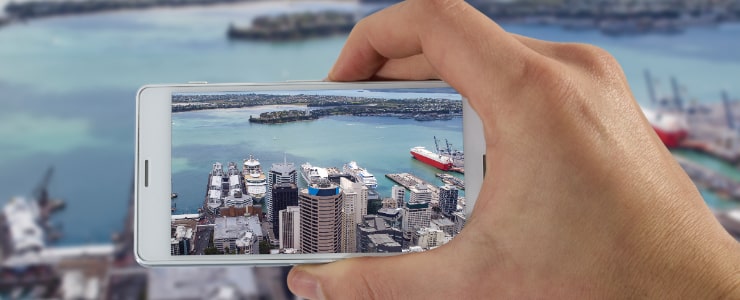
Inbound tour operators organize and sell travel packages for visitors coming into the country. They are responsible for creating itineraries and ensuring that visitors have a memorable experience during their stay. They typically work with local suppliers, such as hotels, transportation companies, and tour guides, to assemble their packages.
2. Outbound Tour Operators
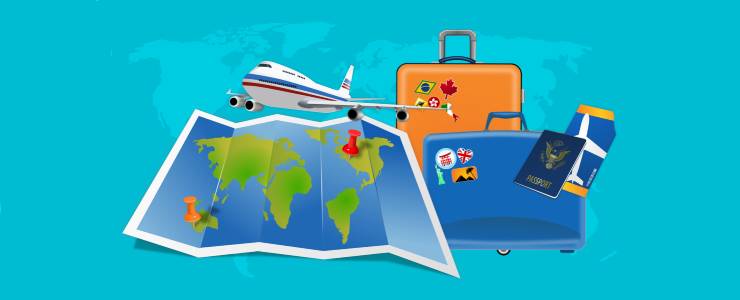
Outbound tour operators are companies that organize and sell travel packages for consumers who are traveling out of their home country. They are responsible for creating itineraries and ensuring that travelers have everything they need for their trip. They work with local suppliers in the destination country to ensure everything is in place when their clients arrive.
3. Domestic Tour Operators
Domestic tour operators organize and sell travel packages within their home country. They specialize in creating tours that showcase the best that their country has to offer. They work with local suppliers, such as hotels, transportation companies, and attractions, to create their packages.
4. Specialist Tour Operators
Specialist tour operators focus on specific niches within the travel industry. They may specialize in adventure, education, luxury, or any other type of travel that appeals to a particular group of travelers. They typically have a deep knowledge of their niche and can create unique and memorable client experiences.
5. Travel Agency and Tour Operators

Travel agencies and tour operators are often used interchangeably, but there is a noticeable difference between the two. Travel agencies typically sell flights, hotels, and transportation, while tour operators create and sell complete travel packages that include activities and accommodation.
6. Luxury Tour Operators
Luxury tour operators create and sell high-end travel packages to discerning travelers. They typically offer personalized service, exclusive access to attractions and activities, and top-of-the-line accommodations. Luxury tour operators cater to travelers who are looking for a one-of-a-kind experience.
7. International Tour Operators
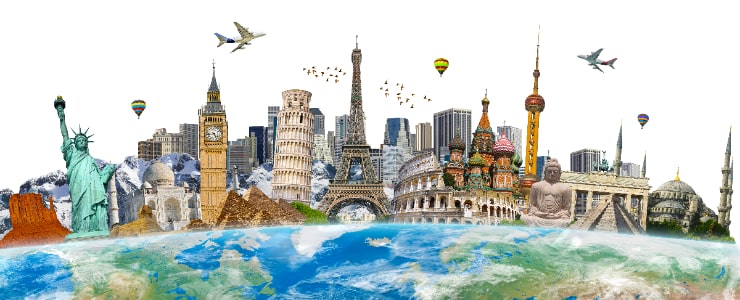
International tour operators are companies that create and sell travel packages to destinations around the world. They work with local suppliers in each destination to develop itineraries that showcase the best of what the goal has to offer.
8. Coach Tour Operators
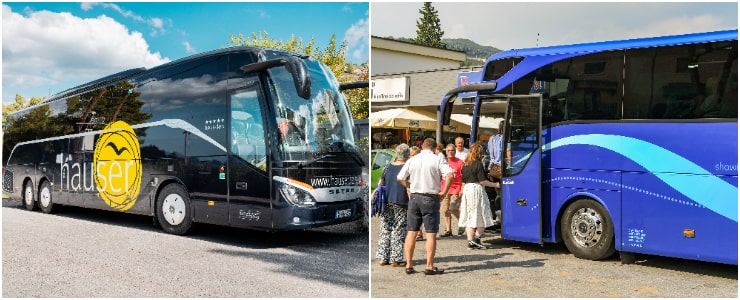
Coach tour operators are companies that organize and sell tours that are conducted on a coach or bus. These tours typically cover a large area or several countries. They offer a convenient and affordable way to see multiple destinations in one trip.
9. Receptive Tour Operators
Receptive tour operators work with other tour operators to create travel packages for a specific destination. They are responsible for coordinating the local suppliers and ensuring that everything runs smoothly during the trip.
10. Adventure Tour Operators
Adventure tour operators specialize in creating and selling travel packages that offer outdoor activities and adventures. These tours may include hiking, rafting, or wildlife safaris and are designed for travelers looking for an adrenaline rush.
11. Educational Tour Operators
Educational tour operators create and sell travel packages that focus on educational experiences. These tours may include visits to historical sites, museums, or cultural events and are designed to give travelers a deeper understanding of the destination.
Why tour operators are crucial?
Tour operators play a vital role in the travel industry as they create and sell travel packages that offer unique and memorable experiences for travelers. By understanding the different types of tour operators, travelers can choose the right tour operator for their specific needs and preferences.
It’s also worth noting that many travel agencies also offer tour operator services, so it’s important to do your research and choose a reputable company with experience in the destinations and types of travel that interest you.
Whether planning a domestic trip or an international adventure, working with a tour operator can save time and hassle while providing unique and memorable travel experiences. In addition, many tour operators are now offering more sustainable travel options, such as eco-tourism and responsible travel. These tours aim to minimize the impact of tourism on the environment and local communities while providing travelers with unique and authentic travel experiences.
Another trend in the tour operator industry is using technology to enhance the travel experience. For example, some tour operators now use virtual reality to provide travelers with a preview of their destination or to offer immersive experiences during the trip. Tour operators will likely continue to adapt and innovate as the travel industry continues to evolve to meet travelers’ changing needs and preferences.
Suggested Read: How to Become a Travel Agent
In summary, tour operators play a vital role in the travel industry, offering travelers a wide range of options and experiences. By understanding the different types of tour operators and their functions, travelers can make more informed choices when planning their trips. With the increasing focus on sustainability, responsible travel, and technological innovation, the tour operator industry is poised to continue growing and evolving in the years to come.
Frequently Asked Questions
1. what are the criteria for classifying tour operators.
Tour operators are classified based on the type of tour, their business, and their region of operation for package tours. This aids in comprehending the distinction between the meaning and function of each category. Inbound, outgoing, domestic, and ground operators are therefore included in the categorization.
2. Who do tour operators collaborate with?
Coordinating with bus companies, airlines, motels, and resort representatives. Service standards, contracts, and fees must be agreed upon. Customer names are confirmed with airlines/hotels.
3. What industry does a tour operator work in?
A tour operator is a hospitality expert that organizes tours and assists guests throughout their visits to ensure that they have a great experience. These experts advise consumers on various travel packages based on their budget and interests.
4. What is the role of an inbound tour operator?
An inbound tour operator specializes in organizing and selling travel packages for visitors coming into a specific country. They work on creating itineraries and ensuring a memorable experience for travelers by collaborating with local suppliers, including hotels, transportation companies, and tour guides.
5. What sets luxury tour operators apart?
Luxury tour operators create and sell high-end travel packages that cater to discerning travelers. These packages often include personalized services, exclusive access to attractions and activities, and top-of-the-line accommodations. Luxury tour operators focus on providing a unique and indulgent travel experience for their clients.
ravinder babbar
February 13, 2024
General , Travel Agent Guide , Uncategorized
Different Types Of Tour Operators , Tour Operators , Types Of Tour Operators
Leave a Reply Cancel reply
Your email address will not be published. Required fields are marked *
Save my name, email, and website in this browser for the next time I comment.
Talk To Us!
Latest posts.
- 7 Digital Marketing Strategies and Why You All Need it
- Perfect guide to planning your dream trip to THAILAND
- Top 10 Things to Know before you visit Dubai
- Exploring Sigatoka Sand Dunes: The Crowned Jewel of Fiji
- 10 Most Beautiful Places to visit in Istanbul
Which Type of Tour Operator are You?
Let’s be honest – the tour operator business is highly competitive as companies try to get a large share of the international and domestic markets they operate in. In order to better navigate the landscape, you need to understand where you stand in that market.
We all know that a tour operator is one who packages key components (or all) of a trip, markets it, sells it to a traveler or tourist, and handles the entire tour operation.
But do you know exactly which type of tour operator you are?
Having clarity on this question will help you identify key partners to work with (like DMOs or hotels) and make better business decisions overall. As a result, you’ll be able to curate better tour packages and run your entire tour operation smoothly, efficiently and successfully.
This is why we’ll cover the different types of tour operators below (plus – we’ve attached a handy infographic at the end for your reference).
So, let’s get to it – which type of tour operator are you?
Types of Tour Operators
There are five main categories of tour operators that you could fall into: inbound tour operators, outbound tour operators, domestic tour operators, receptive tour operators, and ground tour operators. Let’s find out which one of these five you fall into.
Of course any tour operator cannot be fully successful without a booking system that will automate all reservation processes and allow them to generate more revenues. If you still haven’t got a booking system, try Regiondo , the most popular booking system in Europe designed to streamline your booking process. Book a demo with Regiondo experts to learn how your business can leverage booking system.

Inbound Tour Operators (AKA Incoming Tour Operators)
Inbound tour operators bring tourists into a country as a group or via individual tour packages. They handle all arrangements in the host country; and the types of tours they curate are specifically for non-residents touring the country.
Let’s look at an example.
If a group of Italian tourists want to explore Germany, then the tour operator in Germany who handles all the arrangements for the tour is known as an inbound tour operator. So, inbound tour operators are locally based and offer tours that cover their own country.
Most inbound tour operators hire local travel agencies for things like airport pick-up and drop-off; form partnerships with local hotels and businesses; and have key partnerships with other types of tour operators (who help them run tours on the ground).
Outbound Tour Operators
Unlike inbound tour operators, outbound tour operators work within their countries to take travelers to other countries. They are tour operators who market their tours for international destinations, either for business or leisure travel.
Let’s say, for example, that a group of Canadian tourists are planning a trip to Italy. Then the tour company in Canada that handles all the ticket reservations and hotel bookings is the outbound tour operator.
To further simplify things, outbound tour operators design and package tours for tourists in their home country to visit an international destination.
Now, most outbound tour operators choose to specialize in specific destinations: either a destination that is “trending” or one in which they have particular expertise and distribution partners. They often work with other tour and activity providers in the destination when designing their travel packages.
Domestic Tour Operators
Domestic tour operators are those that put together inclusive tour packages and sell them to domestic travelers. In other words, they are tour operators who provide travel packages and tours within a tourist’s native country.
Domestic tours usually involve residents of a specific country traveling within that country. They can visit national parks, scenic areas, hospitality tours, city tours , train tours, etc. Since there are many options that tourists can choose from, domestic tour operators often combine several tourist components into an inclusive package that they can sell to travelers within the boundary of the country.
Domestic tour operators form key partnerships with other tour and activity providers in order to attain a larger share of the domestic tourism market.
Receptive Tour Operators (RTOs)
Receptive Tour Operators (RTOs) provide tourism products to tour operators in other markets (as a business-to-business relationship).
Specifically, RTOs sell tourism products, whether they are sold in a tour package or alone, to tour operators and/or travel agents . They are essentially wholesalers and they don’t sell directly to the public.
So how do they make money?
They add a percentage rate (or fee) to the final price that the tour operator is selling the product or service for. When a travel agent buys the tour product, they incur the RTO’s fee in the final price. In that sense, RTOs do not charge commission. They simply market the tourism product and add their fee to the final product price.
Another key characteristic of RTOs is that they are experts in the region they operate in; and know much more than just the hotels and types of tourism activities that are offered in the region. As such, RTOs to help other tour operators identify things like hotels, services and design itineraries in regions they are not familiar with.
Ground Tour Operators
Ground tour operators operate domestically. They are however different from domestic tour operators in that they organize tours for incoming tourists on behalf of an inbound tour operator (and sometimes, outbound tour operators).
Let’s look at an example to better understand the role they play.
Italy will be the destination in this example. So, here’s how it works:
An inbound tour operator designs and promotes beach holidays, adventure, and heritage tours in different parts of Italy. Problem: the inbound tour operator doesn’t have offices across Italy. The inbound tour operator also doesn’t have close contacts or partnerships with suppliers and key agents in certain parts of the country. So, they consult with ground tour operators.
It is the ground operator that will handle the incoming tourists at those various destinations around Italy. They oversee land arrangements; negotiate with and contract local vendors; coordinate arrivals and departures; plan and put together local tour packages; escort tourists; provide market data; and cost and price tour packages. Overall, it is their duty to ensure that the entire trip goes smoothly based on the package tours and agreements.
You may know ground tour operators as “handling agencies” because they organize tours for incoming tourists on behalf of overseas tour operators.
Wrapping Up
Back to the question we asked at the very beginning: which type of tour operator are you? Now that you’re better informed to answer that question, you can also start thinking about ways to improve your distribution and marketing channels based on that answer.
The next step is to figure out who your key partners are and strike up deals to propel your business forward.

Stay updated with Regiondo by signing up for our Newsletter

Get a personalized demo or create your free account now
Take your business to the next level with Regiondo - it's free to get started and you don't need a credit card.

Types of Tour Operators
- Post author By varun
- Post date November 24, 2022
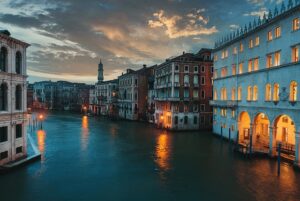
A huge number of tourists travel each year, exploring the snow-clad mountains, lush green forests, bustling cities and crystal-clear oceans across the world. Though, it can be a hassle to make trip arrangements, only to end up finding overpriced flights, shady hotels, and uncertain weather forecasts. There are different types of tour operators available that play a major role in tackling these issues and offering foolproof tour packages that allow you to fully experience the beauty of a tourist destination.
There are different types of tour operator that currently exist in the market, ready to fulfill the unique needs of a tourist who would like to pursue national or international trips. These tour operators are known for their expertise and facilities, offering more choices to the tourists who would like assistance in planning their trip. But first, you must know what a tour operator is.
What are Tour Operators?
A tour operator’s main responsibility is to plan the services provided to the customer, such as travel and lodging. The tour operator makes use of their expertise and resources to provide comfortable, secure, and—most importantly—budget-friendly trips. Additionally, tour operators help customers throughout the journey, including creating itineraries, arranging transportation, booking accommodation, and preparing delicious meals.
They also collaborate closely with numerous companies to create “trip packages,” including those in the airline, hotel, meals, transportation, and insurance industries. These tour operators are skilled in creating itineraries for various kinds of travelers, including those traveling alone, as a pair, in a group, and even from outside the host country.
In fact, having a tour operator makes it easy for tourists to organize travel to destinations that might require more planning. After all, tour operators also have connections with tourism boards and other government entities.
The tour packages created by tour operators also include organizing events that will interest the tourists. Moreover, among the different types of tour operators , tourists can select the one who has expertise in the kind of vacation they are planning.
For example, if you would like to enjoy an adventurous vacation, partaking in activities such as scuba diving or kayaking, then you must select a tour operator who has years of experience in this field.
Types of Tour Operator & Examples of Each
Actively helping tourists in enjoying their vacation despite difficult terrain and weather conditions is one of the many hats that an operator wears. After all, only these tour operators can make it possible for people to travel affordably and with complete ease.
However, the tour operator role has evolved over the years and now has various subtypes to it. Let’s have a look at a few of those different types of tour operator :
- Inbound Tour Operators: Inbound tour operators are locally based businesses that bring visitors to a specific country or destination. Moreover, they frequently partner with other businesses, such as accommodation and transportation providers, to offer customers package deals. Inbound tour operators, also known as destination management companies, strive to sell their location as a whole to incoming tourists and help them with all aspects of their trip.
- Outbound Tour Operators: On the contrary , Outbound tour operators advertise to domestic travelers and arrange tours to international destinations. Outbound tour operators typically focus on specific countries, destinations, or regions of the world when developing tour packages. In addition, they also collaborate with businesses in the host nation to provide customers with comfortable and holistic packages.
- Domestic Tour Operators: As the name implies, such types of tour operator create packages for domestic travelers or those who travel within their own country. Moreover, they promote travel within their own country by offering packages to popular destinations. For example, combining four to five tourist destinations of the same city or state within the country, tour packages to pilgrim destinations, long-distance treks, and so on.
- Ground Tour Operators: Ground operators, similar to domestic tour operators, function within their own country. However, they typically work on behalf of inbound or outbound tour operators. Moreover, they are the ones who provide the actual travel service in a destination, offering complete assistance to tourists.
These types of tour operator are beneficial for trips to remote locations where planning itineraries without local knowledge, expertise, and connections can be difficult. Ground operators are likely to be present at the destination to arrange transfers, negotiate special rates with lodging providers, identify the best local tour guides, etc.
Want To Become a Tour Operator? Get Started with Pathfndr
To start your professional journey as a tour operator, Pathfndr is the ideal platform where you can fulfill all your dreams of establishing yourself in the tourism industry.
Unlike any other place, Pathfndr allows its users to publish their own AI-powered website within a few minutes. As an end-to-end travel operating system, Pathfndr also allows you to manage your clients, recent order, invoices, tour pricing packages, discount vouchers, and so much more. While 15+ algorithms drive the platform, this travel solution is powered by 100+ terabytes of world’s travel data.
All types of tour operator can take their business online with a few clicks. So, what are you waiting for? Visit Pathfndr today.
All in all, travel operators fill in the gaps in the journey by bringing their experience and expertise to the table. Customer safety is one of the most important pillars of a successful tour company, and having a travel operator can help to ensure it. Various types of tour operator have become a way to explore untouched parts of the world without having to worry about any travel arrangements such as accommodation options, sightseeing options, transportation and meals.
As the domain has grown so large, there are different types of tour operator available, offering flexibility to customers. And finally, these tour operators can suggest travel plans as per your budget, so you don’t miss the best of what’s out there. Now, whether you’re traveling alone or with a loved one, having a tour operator along with you will help you enjoy a relaxing vacation.
What is a Specialist Tour Operator?
A specialized tour operator provides unique and niche travel experiences. You can think of food tours, cooking classes, wine tastings, and hiking tours. Any tour provider that offers services in a niche is a specialized tour operator.
In recent years, there has been a rising interest in specialized tourism. For example, 2021 data shows that 68% of travelers are shifting towards sustainable tourism. Also, the Global Wellness Institute reports that 64% of travelers want wellness vacations. In addition to these, food tourism is constantly growing. In the U.S. alone, 95% are looking for 'some kind of unique food experience', and the numbers are growing globally.
In this blog, we'll learn more about specialized tour operations. If you are a travel agent or tour provider looking for a fresh marketing approach in 2024, this is for you. Below are 5 ideas on how to curate specialized travel experiences that meet travelers' demands.
1. Niche Expertise

Specialist tour operators have in-depth knowledge and expertise in specific travel niches or themes, such as adventure travel, wildlife safaris, cultural immersions, or culinary tours.
Did you know that some specialist tour operators specialize in niche markets like "dark tourism," offering tours to historically significant but often somber places such as battlefields, prisons, or disaster sites?
Tips for tour operators:
- Know Your Stuff : Really get to know everything about the special travel area you're focusing on, like history and interesting facts.
- Tell Great Stories : Make your tours interesting by telling cool stories. Work with local people who know a lot about the place to make it more real.
- Listen and Change : Pay attention to what your travelers like and don't like. Use their feedback to make your tours even better.
2. Customized Experiences

They often have travel agency to offer customized or tailor-made itineraries to cater to the unique interests and preferences of their target audience, allowing travelers to personalize their journeys.
Many specialist tour operators provide travelers with the opportunity to design their own itineraries, offering a level of personalization that can include specific activities, accommodations, travel arrangements, or even dietary preferences.
- Offer Tailor-Made Options : Give your travelers the chance to create their own itinerary. This could mean letting them pick specific activities, choose their own accommodation, or even request special meals.
- Ask for Preferences : Before the trip, ask your travelers about their interests, what they want to see and do, and any special needs they might have. Use this info to make their experience more personal.
- Flexible Scheduling : Allow some flexibility in your itinerary. This way, travelers can spend more time on the activities they enjoy most or explore additional sites that catch their interest during the tour.
3. Destination Specialization

Some specialist tour operators concentrate on specific destinations or regions, becoming experts in those areas and offering comprehensive experiences within them.
Other specialist tour operators focus exclusively on regions with unique natural wonders, like the Galápagos Islands, where they specialize in eco-friendly and sustainable travel experiences.
- Be a Local Expert : Learn everything about the specific region or destination you focus on, including its culture, history, and natural wonders. This knowledge will help you create in-depth, engaging tours.
- Highlight Unique Features : Showcase what makes your destination special, like unique natural attractions or cultural experiences. For example, if you specialize in the Galápagos Islands, emphasize eco-friendly tours that highlight the unique wildlife and ecosystems.
- Sustainable Practices : If your destination is known for its natural beauty, like the Galápagos, prioritize sustainable and eco-friendly travel practices to preserve the environment. This is not only good for the planet but also appeals to eco-conscious travelers.
4. Exclusive Access

They may provide package tours with exclusive access to attractions, accommodations, or activities that are not readily available to mass-market tour operators, enhancing the uniqueness of the tours.
Specialist tour operators might arrange exclusive access to archaeological sites before or after regular opening hours, allowing travelers to explore these historic treasures without the crowds.
- Arrange Special Visits : Work to get special access to popular sites, like arranging visits to archaeological sites outside of normal hours. This lets travelers enjoy these places without the usual crowds.
- Unique Experiences : Offer activities or experiences that aren't usually available to the general public. This could be anything from a private tour with a local expert to exclusive access to certain areas.
- Build Relationships : Develop good relationships with local attractions and accommodation providers. This can help you arrange special access or unique experiences for your travelers.
5. Passionate Guides

Specialist tour operators often employ passionate and knowledgeable tour guides who are experts in the niche or destination, ensuring travelers receive a high level of expertise and engagement during their journeys.
In the world of birdwatching tours, specialist operators often employ ornithologist guides who are not only experts in bird identification but also passionate advocates for bird conservation, enriching travelers' experiences with their deep knowledge and enthusiasm.
- Hire Expert Guides : Look for guides who are not just knowledgeable but also passionate about the niche. For example, in birdwatching tours, hire ornithologists who are experts in bird species and conservation.
- Train for Engagement : Ensure your guides are trained not only in factual knowledge but also in engaging storytelling and interaction with travelers. This enhances the overall experience.
- Focus on Special Interests : Match guides with specific interests or expertise to relevant tours. A guide's enthusiasm for their specialty, like bird conservation, can greatly enrich a traveler's experience.
Key Takeaways
As we wrap up our exploration of specialized tour operators, it's clear that this niche-focused approach in the tourism industry is not just a trend, but a growing sector meeting diverse traveler demands.
From the increasing interest in sustainable tourism and responsible travel, to the rise of wellness vacations and unique culinary experiences, the opportunities for specialized tour operators are vast and varied.
To stand out in this competitive market, here are three key actionable tips that you, as tour and activity providers, can implement:
- Embrace Your Niche : Whether it's eco-tourism, culinary experiences, or wellness retreats, dive deep into your niche. Know your audience and tailor your offerings to their specific interests and needs.
- Prioritize Authentic Experiences : Travelers are seeking genuine, immersive experiences. Collaborate with local communities and experts to offer authentic and unique tours that cannot be found elsewhere.
- Leverage Technology and Innovation : Utilize the latest technology, like AI for personalized itinerary planning or virtual reality previews of tours, to enhance the customer experience and streamline operations.
By focusing on these areas and continually adapting to the evolving desires of travelers, you can create memorable and distinctive experiences that not only meet but exceed the expectations of your clientele. Remember, in the world of specialized tourism, it's all about delivering uniqueness, authenticity, and quality.
Our Happy Specialized Tour Operators
TicketingHub has worked with specialized tour and activity providers for years now. Some of them are now renowned for their food tours, city tours, and special events. Read our case studies below and see what helped them succeed in this rising market.
- The Secret Food Tours
- Egypt's Sound and Light Show
- Belfast City Tours
People Also Ask:
1. why is online booking software helpful for specialist tour operators.
An online booking software is a game-changer for specialist tour operators. This type of software streamlines the booking process, making it easier for travelers to secure their spots on specialized tours.
For the operator, it simplifies managing reservations, tracks customer preferences, and automates tasks like sending confirmations and reminders.
Online booking systems offer efficiency and personalized service, particularly for specialist operators who deal with customized and niche travel packages. It saves money and time, both for the tour operator and the traveler, enhancing the overall experience.
2. What is a specialist tour operator?
Specialist tour operators are tour operators in the travel industry who focuses on offering specialized and niche travel experiences. Unlike mass market tour operators who cater to broad, general travel demands, specialist tour operators offer in-depth expertise in specific areas.
These can range from eco-tourism, adventure travel, cultural tours, to specific country or regional focuses. They provide tailored package holidays and tours that cater to specific interests and often offer more personalized service than other tour operators.
3. What is a specialized tour?
A specialized tour is a travel package designed to cater to specific interests or themes. Unlike general tour packages offered by many travel agencies, specialized tours delve deep into a particular area, offering unique experiences such as eco-tourism adventures, culinary tours in specific countries, or in-depth exploration of national parks.
These tours are usually crafted by specialist tour operators who possess deep knowledge and passion for the niche, ensuring an enriching and authentic experience for the traveler.
4. What are the main three types of tour operators?
The three main types of tour operators in the travel industry are inbound tour operators, outbound tour operators, and domestic tour operators.
- Inbound Tour Operators : These operators specialize in arranging tours and travel packages for travelers coming into a country. They work closely with hotels, airlines, and ground operators to provide a comprehensive travel experience in the destination country.
- Outbound Tour Operators : These receptive tour operators organize trips for travelers stepping out of their home country to visit other destinations worldwide. They often work with airlines, hotels, and travel operators in different countries to arrange all travel components.
- Domestic Tour Operators : They organize tours for domestic travelers within their own country. They specialize in knowing the best local spots and experiences that appeal to domestic travelers, including hotels, transport, and leisure travel activities.
Each type of tour operator plays a crucial role in the tourism ecosystem, catering to different segments of holidaymakers and travelers. It offers varied services like transport, accommodation, and travel packages.
5. What types of niche travel experiences do specialist tour operators offer?
Specialist tour operators offer a wide range of niche experiences, including wildlife safaris, cultural immersions, adventure travel, culinary tours, and more. They cater to specific interests and passions, providing travelers with unique and customized journeys.
6. Are specialist tour operators more expensive than regular tour companies?
Specialist tours can cost widely depending on niche and customization. While some specialist tours may have a premium price due to exclusive access or unique experiences, others can be competitively priced. It's essential to compare options and assess the value of all arrangements and experiences offered.
Get the latest news and stay in touch with the industry secrets.
By clicking "Subscribe", you agree to our Privacy Policy and the data we do collect.

Why Your Business Needs a Travel Booking Software Now

Top 10 Essential Features for Distillery Tour Booking Software

What to Look For in the Best Online Booking Software?

3 Key Steps on How to Select a Tour Booking Software Provider
Keep Reading

Discover the role of specialized tour operators. From wellness to food tours, gain insights in how they create authentic travel experiences.
How Can Tour Operators Contribute to Sustainable Tourism?
Explore how tour operators contribute to sustainable tourism, with eco-friendly strategies and community support tips.
- Transportation
- Single & Multi-Day Tours
- Museums and Attractions
- Destination Marketing Organizations
- Google Things To Do
- Zaui Marketplace
- System Status
- Case Studies
- API Documentation
- Reseller Signup
The Ultimate Guide to working with Tour Wholesalers and Operators
By: Marium Farooq
March 3, 2023
Table of Contents
Tips and Tricks to establish partnerships with Tour Wholesalers and Intermediaries
As you grow your business and find ways to optimize your revenue, you will be intrigued to work with Tour Wholesalers and Operators. But it can be challenging to understand the pros and cons of working with them to ensure the relationship affects your business positively.
Here is everything you need to know about working with Tour Wholesalers and how to make the most of this amazing opportunity:
What is the difference between a Tour Operator and a Tour Wholesaler?
The terms are often used interchangeably but have different meanings. A Tour Wholesaler creates packages by combining multiple activities, most likely, transportation and other services, and sells them via a sales channel. A Tour Operator is an organization or a firm that combines components from different travel suppliers and sells directly to the public.
Why are tour operators and wholesalers important?
Tour Operators and Wholesalers can help you sell bookings in bulk which can help you grow and increase your profit. A sizeable segment of travellers are searching for all inclusive travel packages with the ease of booking. By building a relationship with tour wholesalers and operators, you can add an additional revenue stream to your business. It can also be a valuable distribution channel to scale your business and ensure that travellers have access to your activities and services.
What are the 3 main types of tour operators?
The three main categories of tour operators are Domestic Tour Operators, Inbound Tour Operators, and Outbound Tour Operators.
- Domestic Tour Operators create inclusive tour packages specifically for domestic travellers. To simplify things, they are tour operators who provide travel packages within the traveler’s native country. They typically combine multiple tourism components to create packages e.g. a transport service and a set of activities to sell to travellers within the country boundaries. Domestic tour operators form relationships with other travel service and activity providers to create unique experiences for travellers in order to attain a larger share of the Domestic Tourism market.
- Inbound Tour Operators or Incoming Tour Operators handle all activities and arrangements for the tourists in the host country. The packages are created specifically for Groups and Individuals who are non-residents of the country traveling to the host country for leisure or business. An inbound tour operator typically works with local travel agents and businesses to curate a tour package or packages that covers their own country.
- An Outbound Tour Operator or Outgoing Tour Operator handles all travel arrangements and activities for International destinations. To simplify it further, the packages are created to take travellers to other International Destinations from their home country. They are tour operators who market their tours for international destinations, either for business or leisure travel. Typically, an outbound travel operator will work or partner with businesses, destination marketing organizations and online travel agencies in the destination country to design a tour package for their customers. Most Outbound tour operators specialize in particular destinations based on tourism trends, their distribution partners and their expertise in the destination country.
Tips for working with Wholesalers and Tour Operators:
Here are all the secret ingredients you need to form successful travel partnerships with Tour Wholesalers and Operators:
Research to Find the Right Fit
Every Travel Wholesaler and Operator is different. They have their unique distribution systems and they cater to different markets. You want to make sure that there is a connection between their offerings and yours, especially in terms of the market they are targeting and the tourism services they offer.
Start off by conducting research and compiling a kit consisting of their product fact sheets, pricing information, distribution channels, terms and conditions and any unique information that you might require to set you off on the right foot. This information is instrumental in creating a long-term mutually beneficial partnership with Tour Wholesalers and Operators.
Sell Unique Activities and Experiences
One of the most important pieces of the puzzle is to make your activities attractive for the Wholesalers and Operators. It is most likely that you will be working with multiple tour operators and wholesalers, and you want to make sure they find your offerings attractive and unique to add to their itineraries.
Having authentic and unique experiences will not only increase the demand for your activities and bookings but will also appeal to Travel Operators to promote it better, more so than your competitors. According to recent research , the demand for unique experiences is on the rise and travellers all around the world are willing to pay a premium price for unique experiences. Adding an extra element to your offering to make it stand out might go a long way for your business to generate more revenue by putting you in a position to negotiate higher prices with the tour wholesalers and operators.
Prepare to Manage Bookings in Advance and in Real-Time
Managing Bookings while working with Tour Wholesalers and Operators can be a huge challenge. First and foremost, an Online Booking Software is essential to attract Tour Operators to work with you. It will simplify the booking process and will help your partners automatically earn their commissions. It will take away the mundane tasks of constantly emailing and calling to manage bookings and will replace it with a system that updates in real-time and makes everything effortless.
Working with wholesalers and operators can put you in unique situations which will go beyond simple bookings and commissions. One of these cases is to create bookings in advance and then manage real-time bookings as they happen with time. There are many factors that might come into play, which is why you should invest in an online booking engine that can help you customize your Online Booking System and make it a seamless experience for yourself and other stakeholders.
For instance, a software like Zaui with 20 years of experience can help you connect with the best partners all around the world, allowing them to book instantly with zero human interaction. You will ultimately save time and make more money.
Build Personalized Partnerships and Track Performance
What works in one country might not work in the other, the same is the case with Wholesalers and Operators since they can be located in different parts of the world and operate in different types of travel communities. Building personalized partnerships will help optimize your bookings and create custom marketing strategies to make better-informed decisions.
It is equally important to keep track of how each partnership is performing for your business. Tracking the performance will determine the next steps for your Marketing Plan and Communication. Additionally, it will provide insight into each market and ultimately boost bookings.
One of the ways to achieve your goals and maximize your performance is to choose an Online Booking Software that can help you connect with the best distribution agents all around the world and track their performance.
Zaui Online Booking Software offers a Channel Manager platform and Reporting Dashboard that can help you connect with distribution partners and optimize growth. Request a Free Personalized Demo from our support team to help maximize your Bookings and Revenue!
You can also have a look at our website to hear our customer success stories or check our Buyer’s Guide as you search for the best online platform to work with Travel Wholesalers and Operators.
Get a Personalized Demo
Inside Zaui: Product News, Tips & Tricks
- Tips & Tricks
- Tours & Activities
How to Write a Tour Booking Confirmation Email: 8 Types with Great Examples
How to Write a Tour Booking Confirmation Email: 8 Types with Great Examples Confirmation email templates offer a valuable means...
Top 7 Travel Review Sites for Tour Operators in 2024
Top 7 Travel Review Sites for Tour Operators in 2024 Your customers are the initial guides for your tour and...
11 Tips on How to Increase Sales in a Tour Company
11 Tips on How to Increase Sales in a Tour Company In today’s dynamic travel industry landscape, tour companies face...
Curabitur nec nunc ut augue tincidunt interdum quis a diam. Suspendisse vel justo vitae mauris sodales commodo. Nullam dapibus nisi mi, id lobortis urna scelerisque ac. Duis auctor enim sit amet quam lacinia malesuada.
- Wednesday, April 24, 2024
Different Types of Tour Operators
Whether you are travelling alone, with your family or going out with friends, choosing the best tour company and knowing the kind of services that you need can be quite overwhelming. According to the UN World Trade Organization, there are 3 major types of tours namely inbound, domestic and outbound. Thankfully, many tour companies provide both outbound and domestic tour services. But what are they? Read through to learn more about them.
Domestic Tours
These kinds of tours involve the residents of a given country travelling within the country. The kind of services provided includes visiting the national parks, scenic features, train tours, and hospitality tours. Since there are endless options, tourists can always choose the kind of services that they need. Domestic tour operations are therefore for those who combine tourist components into an inclusive package that they can sell to the tourist. Basically, they provide services within the boundary of the country.
Inbound tours
These kinds of tours involve non-residents touring another country. Companies that provide these services are known as inbound or receptive tour operators. They are especially useful in international tours where there is luggage to be handled . They make arrangements to hire local agents, for airport pick-up and delivery and to attend to all the details including handling any emergencies. If you are working for these companies, you are likely to be local. These tour operators, therefore, need to adopt new strategies and introduce special interest to cater to the special needs of foreign tourists.
Outbound tour operators
These refer to tour operators who promote tours to other countries. These may be leisure or business tours. They generally take residents from one country to another. They take travellers from around the world to the different countries that they want to go to. Some of the most popular places include the USA, Europe, China, Patagonia, the Middle East, and Antarctica. There are many companies that provide these kinds of services. If you love these tours , you can always contact them to get further information regarding the packages offered.
Ground operators or destination management companies
Commonly known as handling companies, these companies main work is to organize tour arrangements for any incoming tourists on behalf of other operators. When an operator promotes wildlife holidays, beach holidays, and cultural tours at different places some issues may come up. It’s, therefore, the ground operator who will ensure that the entire operation goes according to the package agreements and tours.
List of services provided by the tour companies
- Accommodation- Most tour companies take pride in giving the customers the accommodation that they need. No matter where they are, these companies will ensure that they are comfortable.
- Flight reservations- Depending on the flight that you need the companies will make prior arrangements and reserve the flight for you.
- Delivery service- Most agencies also delivers itinerary tour documents, airline tickets , and other travel documents free of charge to customers.
- Car hire services- Should the tourist prefer a particular car hire services, the company will provide them with that. As long as you love these tours, they will make sure you are comfortable and safe.
4 thoughts on “ Different Types of Tour Operators ”
As a Newbie, I am always exploring online for articles that can aid me. Thank you
Hello! This is kind of off topic but I need some advice from an established blog. Is it tough to set up your own blog? I’m not very techincal but I can figure things out pretty quick. I’m thinking about making my own but I’m not sure where to start. Do you have any points or suggestions? With thanks
Oh my goodness! Incredible article dude! Thank you, However I am encountering issues with your RSS. I don’t know the reason why I cannot join it. Is there anyone else having the same RSS problems? Anyone that knows the answer can you kindly respond? Thanks!!
Hi there! Do you use Twitter? I’d like to follow you if that would be okay. I’m undoubtedly enjoying your blog and look forward to new posts.
Leave a Reply Cancel reply
Your email address will not be published. Required fields are marked *

COMMENTS
Tour operator is an organization, firm, or company who buys individual travel components, separately from their suppliers and combines them into a package tour, which is sold with their own price tag to the public directly or through middlemen, is called a Tour Operator. More precise tour operators are primarily responsible for delivering and ...
To put it simply, a tour operator is the person or organisation who takes the individual elements of a holiday (e.g. transfer, hotel, transport) and packages these together. The types of package vary. Most commonly, tour operators are associated with mass tourism and the traditional package holiday market. However, tour operators do also play ...
While there are several different types of tour operator, the main ones include: Inbound Tour Operator. Outbound Tour Operator. Domestic Tour Operator. Ground Operator. Receptive Tour Operator. These companies can also focus on the mass market or can specialise on a niche group, such as eco-tourism, adventure sports or food tours.
4 Importance of Tour Operators. 5 Role of Tour Operators in Tourism Business. 5.1 Tour Packages Creation. 5.2 Make Travel Arrangements in Advance. 5.3 Tour Operations Budgeting. 5.4 Providing a Relaxed and Safe Tour. 6 Difference between Travel Agent and Tour Operator. However, a tour operator who has his own one or more tourist product ...
3. Domestic Tour Operators. Domestic tour operators organize and sell travel packages within their home country. They specialize in creating tours that showcase the best that their country has to offer. They work with local suppliers, such as hotels, transportation companies, and attractions, to create their packages.
The different types of tour operators vary according to the way they do business and their customers. Most tour operators create and market tours that package the elements required for a successful holiday, such as accommodation and transport. They may also include elements to enhance the tour experience, such as entertainment and transfers.
Sep 13, 2023. Different types of tour operators serve as the architects behind the seamless & enchanting journeys that travelers embark upon. In the expansive realm of the travel industry, these ...
Tour Operator: Types, Certification, Management, and Functions. June 01, 2023. Views: 641. We see a variety of advertisements in day-to-day life in magazines as well as newspapers regarding a three-day or one-week tour that mentions the total cost of the package with an itinerary. For instance, a one-week tour to Thailand under ₹ 50,000 or ...
A tour operator is a business that typically combines and organizes accommodations, meals, sightseeing and transportation components, in order to create a package tour. They advertise and produce brochures to promote their products, holidays and itineraries. Tour operators can sell directly to the public or sell through travel agents or a ...
From tour operators to airlines, to tourist boards and conservation activists, each organisation is different. However, most travel and tourism organisations can be grouped into one of three categories: private, public or voluntary. In this article I will explain what's meant by each type of thew types of travel and tourism organisations.
Tour Operators vs. Travel Agencies. While both tour operators and travel agencies play pivotal roles in the travel industry, they differ in their approach and scope: Tour Operators: As discussed, tour operators focus on crafting comprehensive travel packages that encompass various aspects of a journey. They specialize in creating cohesive ...
Definition of Specialist Tour Operators; A specialist tour operator is a company that focuses on a specific niche or interest. They create packages that cater to travelers with specific interests or needs. Some examples include adventure, luxury, cultural, or wildlife travel. Their role in managing niche travel experiences; They specialize in ...
A tour operator is a company that designs, organizes, and sells pre-packaged tours or holiday packages to travelers. Tour operators handle all aspects of the tour, including accommodations, transportation, meals, guided tours, and activities. They often work with travel agents to sell their tour packages to clients.
3. Domestic Tour Operators. Domestic tour operators organize and sell travel packages within their home country. They specialize in creating tours that showcase the best that their country has to offer. They work with local suppliers, such as hotels, transportation companies, and attractions, to create their packages.
Types of Tour Operators. There are five main categories of tour operators that you could fall into: inbound tour operators, outbound tour operators, domestic tour operators, receptive tour operators, and ground tour operators. Let's find out which one of these five you fall into. Of course any tour operator cannot be fully successful without ...
Various types of tour operator have become a way to explore untouched parts of the world without having to worry about any travel arrangements such as accommodation options, sightseeing options, transportation and meals. As the domain has grown so large, there are different types of tour operator available, offering flexibility to customers ...
Tour operators play a pivotal role in the tourism industry. They create and organize tour packages, catering to both business and leisure travelers. These packages simplify travel arrangements, offering hassle-free travel. Tour operators are the key architects of memorable trips, ensuring travelers can explore various destinations easily.
The three main types of tour operators in the travel industry are inbound tour operators, outbound tour operators, and domestic tour operators. Inbound Tour Operators: These operators specialize in arranging tours and travel packages for travelers coming into a country. They work closely with hotels, airlines, and ground operators to provide a ...
A tour operator is a hospitality professional who organizes tours and provides support to customers during trips to help them have positive experiences. These professionals advise customers on different tour packages based on their budget and interests. They handle all logistical aspects of a tour, such as booking tickets and reserving ...
What are the 3 main types of tour operators? The three main categories of tour operators are Domestic Tour Operators, Inbound Tour Operators, and Outbound Tour Operators. Domestic Tour Operators create inclusive tour packages specifically for domestic travellers. To simplify things, they are tour operators who provide travel packages within the ...
Different Types of Tour Operators. Whether you are travelling alone, with your family or going out with friends, choosing the best tour company and knowing the kind of services that you need can be quite overwhelming. According to the UN World Trade Organization, there are 3 major types of tours namely inbound, domestic and outbound. Thankfully ...
In this video, we are discussing the definition of the tour operator and the types of tour operators. Tourism notes channel is created to help tourism studen...
In this video we learn about the tour Operator, types of tour Operator and how they work .